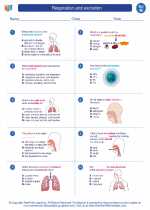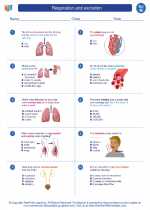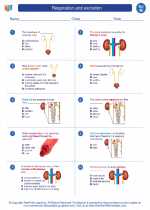Temperature Regulation
Temperature regulation is the process by which an organism maintains an optimal internal body temperature, despite changes in the external environment. This is essential for the proper functioning of biological processes, as many enzymes and metabolic reactions are sensitive to temperature changes.
Homeostasis
Temperature regulation is a key component of homeostasis, the body's ability to maintain stable internal conditions. The hypothalamus in the brain plays a central role in regulating body temperature, acting as a thermostat to detect changes in temperature and initiate appropriate responses.
Heat Regulation Mechanisms
The body uses several mechanisms to regulate its temperature:
- Thermoregulation: The process of maintaining core body temperature within a narrow range.
- Vasodilation and Vasoconstriction: Blood vessels near the skin surface can widen (vasodilation) to release heat or narrow (vasoconstriction) to conserve heat.
- Sweating: The evaporation of sweat from the skin helps to cool the body.
- Shivering: Rapid muscle contractions generate heat to warm the body.
- Behavioral Responses: Seeking shade or warmth, changing clothing, and huddling with others are all examples of behavioral responses to regulate body temperature.
Temperature Regulation in Humans
In humans, the normal internal body temperature is approximately 98.6°F (37°C). When the body temperature deviates from this set point, the hypothalamus triggers appropriate responses to bring the temperature back to normal. For example, when the body is too hot, sweat is produced and blood vessels dilate to release heat; when the body is too cold, shivering and vasoconstriction occur to generate heat and conserve it, respectively.
Study Guide
Here are some key points to consider when studying temperature regulation:
- Define homeostasis and its significance in maintaining stable internal conditions.
- Explain the role of the hypothalamus in temperature regulation.
- Describe the mechanisms the body uses to regulate its temperature, including vasodilation, vasoconstriction, sweating, and shivering.
- Discuss the importance of temperature regulation in maintaining enzyme function and overall metabolic processes.
- Compare and contrast the responses to heat and cold stress in the human body.
Understanding temperature regulation is crucial for comprehending how the human body adapts to different environmental conditions and how disruptions in this process can lead to health issues.
.◂Science Worksheets and Study Guides Eighth Grade. Respiration and excretion

 Worksheet/Answer key
Worksheet/Answer key
 Worksheet/Answer key
Worksheet/Answer key
 Worksheet/Answer key
Worksheet/Answer key
 Vocabulary/Answer key
Vocabulary/Answer key
 Vocabulary/Answer key
Vocabulary/Answer key
 Vocabulary/Answer key
Vocabulary/Answer key
 Vocabulary/Answer key
Vocabulary/Answer key
